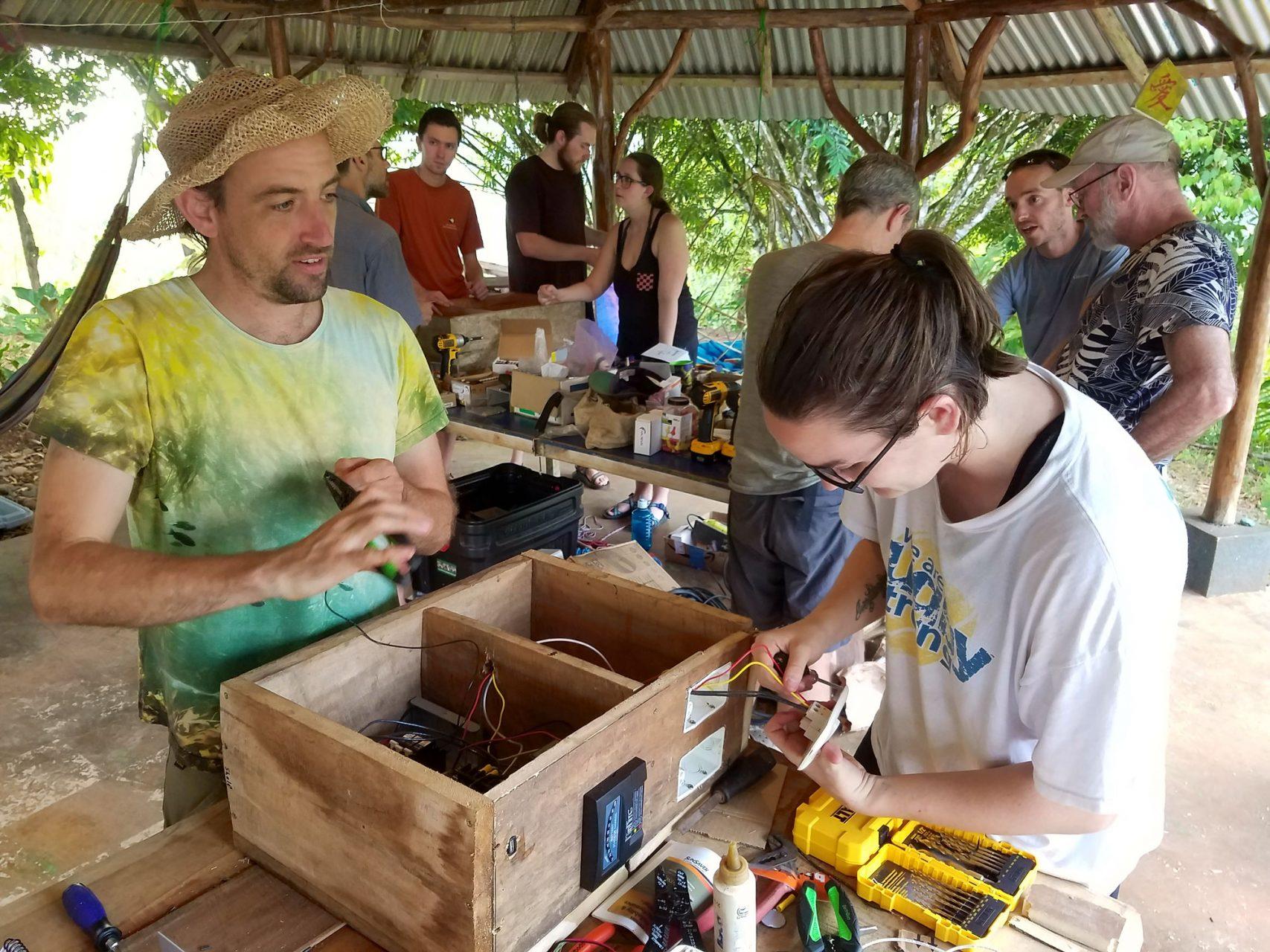Here are two questions for you: 콱콘뗍땠侶몸찐?and ¿Puedes leer esto? If those questions do not make sense to you, don’t worry, there is nothing wrong with your eyes.
It just means you might be one of the 75-80 percent of Americans that do not speak a second language as estimated by the United States Census Bureau.
The two questions posed were written in Mandarin and Spanish, respectively, which, Babbel Magazine reported, are the two most spoken languages worldwide.
You may ask, why does it matter whether you can understand questions written in a foreign language anyway?
Well, like it or not, today’s world is becoming more connected. This means, by default, most Americans entering the workforce will be required to have an adequate understanding of foreign cultures, affairs and yes, in some cases, languages.
The Brookings Institution supported this and stated, “While basic skill development and workforce preparation skills are important in the American education system, a paradigm shift must take place recognizing that in order to be truly globally competitive, we must be globally competent.”
There is also a lot of personal development that can be gained by simply taking the time to learn about another person’s language, their culture and their values.
This then begs the question, how can students best educate themselves on these topics and prepare themselves for today’s globalized society?
One answer is to study abroad.
Whether it is for a year, a semester or just a two-week trip, studying abroad is a great way to dive straight into the deep end and immerse yourself in other cultures.
Maria Anastasiou, Executive Director for the Office of International Education and Development, expanded on these points, and said that understanding the different way cultures interact is a key aspect of global consciousness.
“When you are observing someone [from a different culture] and they are doing something in a different way, don’t compare it and say, ‘Oh, that’s weird, that’s strange.’ Rather, say, ‘That is different,’ and then ask, ‘Why are people doing it this certain way?’,” Anastasiou said.
By acting in this way, she said, “we are able to build [our] intercultural communication skills.”
Anastasiou also agreed that studying abroad and putting yourself in a completely new, foreign environment is an ideal way to swiftly and efficiently gain these skills.
This is because when a student studies abroad, they have to quickly adapt to their new surroundings. This includes everything from the currency, laws, cuisine and the language.
When it comes time for students to graduate and search for a job, Anastasiou said that these are the types of skills employers are actively seeking.
Anastasiou discussed how most jobs today usually require interacting with people from different countries and cultures or who speak different languages, in some cases on a daily basis.
She said that while having the knowledge and degree in your field is clearly important, such as “[having] the pharmacy degree if you are going to be a pharmacist,” that “it is really crucial to have [the] intercultural communication skills.”
This is because a pharmacist may be “working in a pharmacy that has to assist people from other cultures or works with doctors that are from another culture.”
Therefore, having an employee who is easily able to adapt to all types of situation and interact with all types of people is very attractive to employers.
Anastasiou said students can go study pretty much wherever their heart desires.
App State is partnered with 67 institutions around the world and if none of those are in the country you wish to visit, the OIED will work with affiliate programs to get you where you want to go.
Anastasiou also made it clear that any study abroad course taken through App State will be reviewed and approved by the school before you leave to ensure the course counts towards your degree.
The notion of studying abroad may seem wonderful to a lot of students, however there is likely one common barrier most of them will face: the price.
In response to this, Anastasiou pointed out that there are several scholarship opportunities for students who wish to study abroad, both internally and externally from the OIED. Especially if you are studying particular subjects, such as a foreign language or something in the STEM fields.
With all that being said, even with the wide range of opportunities available and the financial assistance that exists, still not every student will be able to study abroad for various reasons. Anastasiou acknowledged this and said that currently only about 25 percent of students will study abroad.
Do not fret, however, if you are not able to study abroad but still wish to acquire these important intercultural communication skills.
Anastasiou said there are several ways to gain a majority of these skills right here on campus.
That is thanks to the fact that App State proudly welcomes international exchange students to our campus from all over the world.
Through programs like iPals, which partners “new international students with current Appalachian State students for friendship and cultural exchange,” or the International Education Week which will be hosted on campus this year from Nov. 13 to Nov. 17, you can interact with these students and learn these skills from them, as well as help them learn these skills too.
If you wish to learn more about study abroad or our own exchange students, please visit the OIED’s website at international.appstate.edu or visit their office in the Plemmons Student Union on the third floor, room 321.
Cristian McLaughlin is a junior public relations major from Roxboro, NC.
Follow him on Twitter at @_CAMcLaughlin


